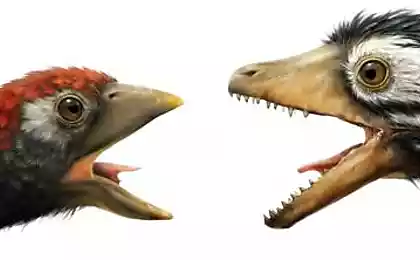1286
10 common misconceptions about animals
We offer you a selection of the most popular myths and misconceptions about the animals and, of course, the facts refute these myths.
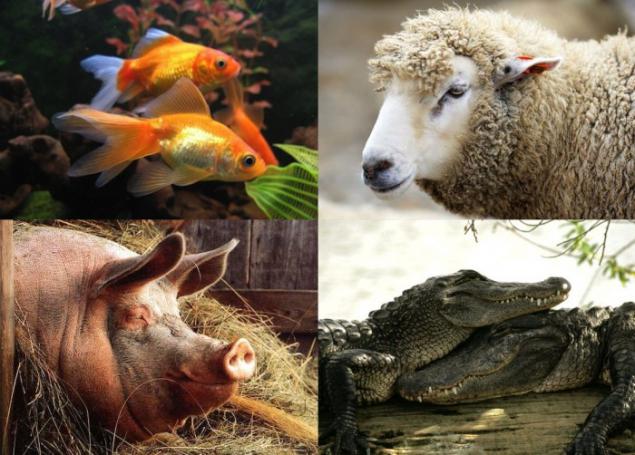
1. Sheep stupid
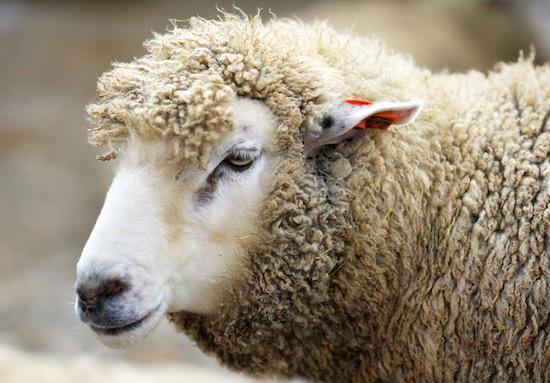
It is believed that the sheep - a very stupid animals. If one sheep in the herd begins to move faster then everyone else blindly follow her. Sheep have almost no individual instincts and motivations, so they decided to refuse even to some intelligence.
However, experts estimate only slightly below their pigs, rodents and monkeys. In fact, among farm animals sheep average. They quickly adapt to changing circumstances, and perhaps even some of the actions can be planned in advance.
Of course, the high intellectual abilities it does not say, but by popular opinion about the exceptional stupidity of sheep is still somewhat different.
2. goldfish helpless
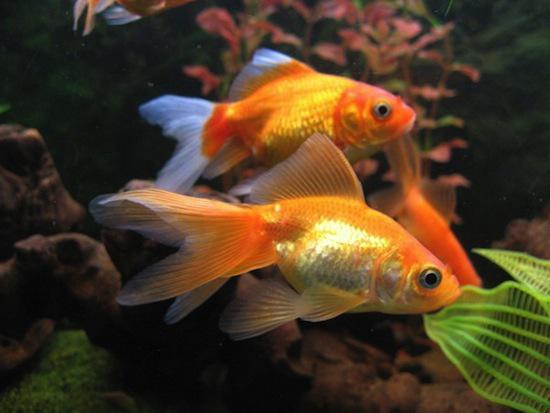
Many parents believe goldfish perfect pet for your child. They do not require a lot of attention and will not annoy too much intrusive. It is true there is a possibility in the first washing tank accidentally ruin the fish - but they are not as vulnerable as we used to think.
In fact, the incredible survival skills goldfish have become something of a legend. One fish remained alive after 13 hours after jumped out of his aquarium. Another lay live 7 hours on the stone floor (it was covered with a feather when the owner found her). It turns out that when the fish is out of water, the reaction slows down her body as well as the bears during hibernation. When goldfish back into the water, their bodies returned to their usual state, and fish continue to swim, as if nothing had happened.
3. Pigs too stupid
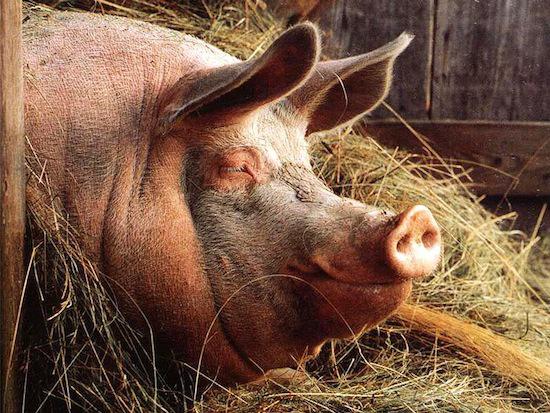
Of course a truly intelligent creature will not spend a lot of time digging in their own feces, but most people do not know that in fact pigs are smarter than they appear. A few weeks after his birth piglets may even be distracted by their own nickname.
If the pig is noted that other pig sent to the cache with food, then follow her and try to steal food. But the second pig is likely to understand what was going on, and if the first pig stronger, try to lure her into a trap or lead to a false cache. Pigs show even the rudiments of reason, that is, the ability to understand what they want to do other animals. Previously, such talents were observed only in dogs, crows and chimpanzees.
4. Dogs measure smyshlёnye

Everyone knows that dogs are smart. However, they are even smarter than we think of them. Test was conducted with the participation of human children, chimpanzees and dogs - they were shown two buckets turned upside down, under one of which was a treat. Experimenter different ways to display the correct bucket something poked a finger at him, then nodded his head in his direction, or simply looking at the bucket, not taking his eyes. Chimpanzee and human babies initially not very well cope with the task and made a lot of mistakes, having learned the principle of selecting only after some time. Dogs also choose the right four times more likely than chimpanzees, and twice as likely as human babies. Never noticed that dogs often understand you better than your own child?
5. Males can not give milk
[Img = uploads / 08.2013 / 996_5.jpg
Perhaps most mothers want their husbands helped them more. If a man runs away from home, or just too lazy, it's good when it helps to at least occasionally. Goats with these more fortunate - their husbands can grow udders and feed the children.
Such cases are quite common. However, how it happens, still remains a mystery to researchers.
6. Crocodiles slow
]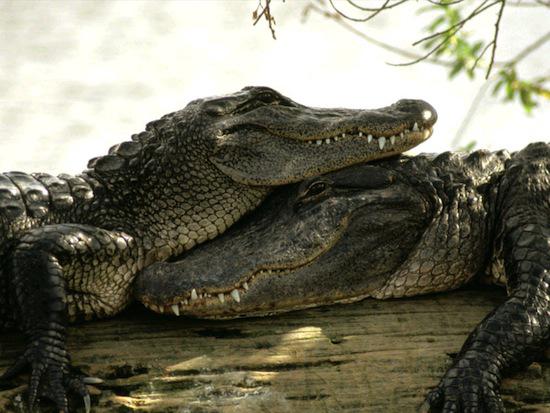
It is believed that crocodiles are moving quickly in water and slowly - on land. This is not quite true. On the ground crocodiles can move at the speed of 16 km / h, and given that they never attack, while the victim will not approach close enough to them that speed is more than enough.
Many have also heard that crocodiles - the most dangerous predators in their habitat. But this is explained by the fact that around them are found, though large, but herbivores buffalo and antelope. And if the crocodiles had to deal with a real fighter? Well, inside the saltwater crocodiles were found the remains of sharks.
7. Animals do not attach importance to death
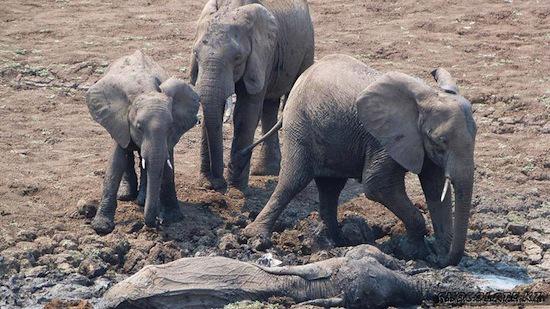
Of course, the animals understand what death: they have to protect themselves and their young, and many of them kill other animals for food. But some more and spend some rituals when their relatives die. Baboons, for example, show an increased level of stress (as the people, by the way) and expand their social circles to interact with other individuals. Red fox bury the dead companion.
Elephants often guard the bodies of their dead, even if never before seen this particular elephant. Jay, if you see a dead bird of its kind, will examine the body and shout so that all other jays in the area learned the news. It would seem so they just warn of the danger, but the fact that the jays with the full-day stop eating. Perhaps animals are more similar to humans than is commonly believed.
8. Animals have sex only for procreation
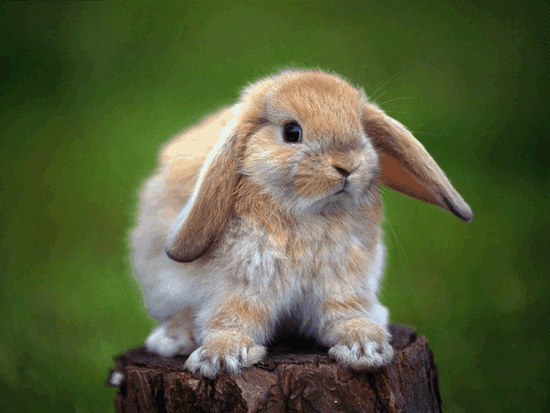
It is believed that animals, especially rabbits and mice, have sex solely for the purpose of reproduction. But it is precisely these kinds of surprisingly timid and romantic when it comes to courtship. They even performed a kind of song before mating.
Rabbits issued a special sound to show the partners that they are ready. As to the mice, they make sounds inaudible to the human ear (ultrasound), but when adjusted for the recording capabilities of the human ear actually turns harmonious whole melody. Males sing only in the presence of females or sensing their odor.
9. river fish do not eat animals
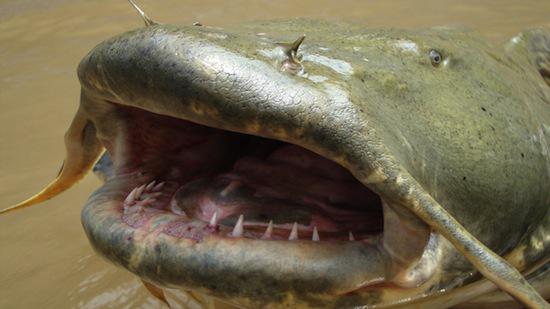
As a rule, it is. River fish eat any insects or aquatic plants. But catfish could eat something bigger, such as a dove, which flew to the water to drink. Catfish sneak rises to the surface, and then jumps out of the water and grabs the pigeon's leg or wing. If you managed to grab the bird, the catfish will try to entice him to the bottom and drown, and then calmly eat.
10. Camels have to constantly sweating
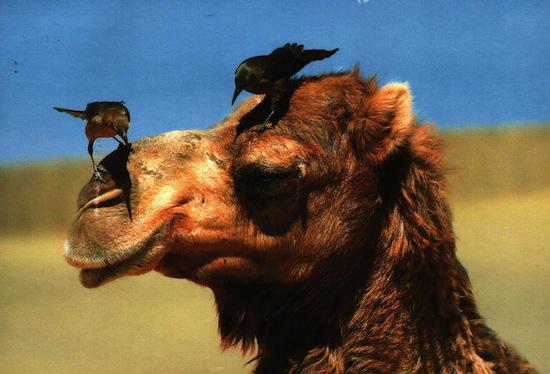
Like all who live in the desert, must constantly sweating - daytime temperature reaches 38 ° C. Only animals that do not sweat in such conditions - it's camels.
When it gets too hot, the body tries to cool via sweating. And camels simply allow their bodies to warm to 48 ° C. Their bodies are arranged in such a way that they can completely ignore the heat because sweat is inappropriate consumption of the most valuable resource in the desert - water.

1. Sheep stupid

It is believed that the sheep - a very stupid animals. If one sheep in the herd begins to move faster then everyone else blindly follow her. Sheep have almost no individual instincts and motivations, so they decided to refuse even to some intelligence.
However, experts estimate only slightly below their pigs, rodents and monkeys. In fact, among farm animals sheep average. They quickly adapt to changing circumstances, and perhaps even some of the actions can be planned in advance.
Of course, the high intellectual abilities it does not say, but by popular opinion about the exceptional stupidity of sheep is still somewhat different.
2. goldfish helpless

Many parents believe goldfish perfect pet for your child. They do not require a lot of attention and will not annoy too much intrusive. It is true there is a possibility in the first washing tank accidentally ruin the fish - but they are not as vulnerable as we used to think.
In fact, the incredible survival skills goldfish have become something of a legend. One fish remained alive after 13 hours after jumped out of his aquarium. Another lay live 7 hours on the stone floor (it was covered with a feather when the owner found her). It turns out that when the fish is out of water, the reaction slows down her body as well as the bears during hibernation. When goldfish back into the water, their bodies returned to their usual state, and fish continue to swim, as if nothing had happened.
3. Pigs too stupid

Of course a truly intelligent creature will not spend a lot of time digging in their own feces, but most people do not know that in fact pigs are smarter than they appear. A few weeks after his birth piglets may even be distracted by their own nickname.
If the pig is noted that other pig sent to the cache with food, then follow her and try to steal food. But the second pig is likely to understand what was going on, and if the first pig stronger, try to lure her into a trap or lead to a false cache. Pigs show even the rudiments of reason, that is, the ability to understand what they want to do other animals. Previously, such talents were observed only in dogs, crows and chimpanzees.
4. Dogs measure smyshlёnye

Everyone knows that dogs are smart. However, they are even smarter than we think of them. Test was conducted with the participation of human children, chimpanzees and dogs - they were shown two buckets turned upside down, under one of which was a treat. Experimenter different ways to display the correct bucket something poked a finger at him, then nodded his head in his direction, or simply looking at the bucket, not taking his eyes. Chimpanzee and human babies initially not very well cope with the task and made a lot of mistakes, having learned the principle of selecting only after some time. Dogs also choose the right four times more likely than chimpanzees, and twice as likely as human babies. Never noticed that dogs often understand you better than your own child?
5. Males can not give milk
[Img = uploads / 08.2013 / 996_5.jpg
Perhaps most mothers want their husbands helped them more. If a man runs away from home, or just too lazy, it's good when it helps to at least occasionally. Goats with these more fortunate - their husbands can grow udders and feed the children.
Such cases are quite common. However, how it happens, still remains a mystery to researchers.
6. Crocodiles slow
]

It is believed that crocodiles are moving quickly in water and slowly - on land. This is not quite true. On the ground crocodiles can move at the speed of 16 km / h, and given that they never attack, while the victim will not approach close enough to them that speed is more than enough.
Many have also heard that crocodiles - the most dangerous predators in their habitat. But this is explained by the fact that around them are found, though large, but herbivores buffalo and antelope. And if the crocodiles had to deal with a real fighter? Well, inside the saltwater crocodiles were found the remains of sharks.
7. Animals do not attach importance to death

Of course, the animals understand what death: they have to protect themselves and their young, and many of them kill other animals for food. But some more and spend some rituals when their relatives die. Baboons, for example, show an increased level of stress (as the people, by the way) and expand their social circles to interact with other individuals. Red fox bury the dead companion.
Elephants often guard the bodies of their dead, even if never before seen this particular elephant. Jay, if you see a dead bird of its kind, will examine the body and shout so that all other jays in the area learned the news. It would seem so they just warn of the danger, but the fact that the jays with the full-day stop eating. Perhaps animals are more similar to humans than is commonly believed.
8. Animals have sex only for procreation

It is believed that animals, especially rabbits and mice, have sex solely for the purpose of reproduction. But it is precisely these kinds of surprisingly timid and romantic when it comes to courtship. They even performed a kind of song before mating.
Rabbits issued a special sound to show the partners that they are ready. As to the mice, they make sounds inaudible to the human ear (ultrasound), but when adjusted for the recording capabilities of the human ear actually turns harmonious whole melody. Males sing only in the presence of females or sensing their odor.
9. river fish do not eat animals

As a rule, it is. River fish eat any insects or aquatic plants. But catfish could eat something bigger, such as a dove, which flew to the water to drink. Catfish sneak rises to the surface, and then jumps out of the water and grabs the pigeon's leg or wing. If you managed to grab the bird, the catfish will try to entice him to the bottom and drown, and then calmly eat.
10. Camels have to constantly sweating

Like all who live in the desert, must constantly sweating - daytime temperature reaches 38 ° C. Only animals that do not sweat in such conditions - it's camels.
When it gets too hot, the body tries to cool via sweating. And camels simply allow their bodies to warm to 48 ° C. Their bodies are arranged in such a way that they can completely ignore the heat because sweat is inappropriate consumption of the most valuable resource in the desert - water.
















